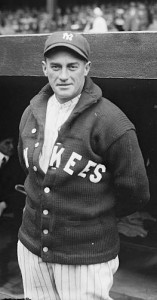In 2011, there were five shortstops in the majors who topped 4 Wins Above Replacement (WAR), using Baseball-Reference’s formula:
Troy Tulowitzki 5.6 WAR
Asdrubal Cabrera 4.8
Jose Reyes 4.7
Yunel Escobar 4.4
J.J. Hardy 4.2
In the context of recent major league baseball, that was a perfectly normal number of shortstops to be in the 4.0 WAR and over range. Indeed, over the past fifteen full seasons, there have been 82 player-seasons by shortstops of 4 or more WAR, an average of about 5.5 such player-seasons a year. There have been at least four shortstops to reach at least 4 WAR in each of the past 15 seasons, and in 2006 there were actually nine guys at short who reached 4 WAR. So how are major league shortstops doing in 2012 in this respect? The answer after the jump. Continue reading


